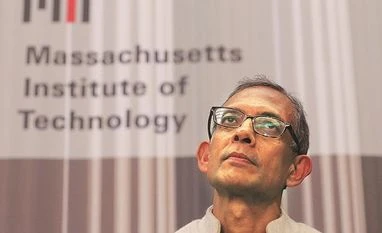What message should New Delhi take from a person of Indian origin winning the Nobel Prize for economics? In a nation increasingly characterized by bristly nativism, the ruling Bharatiya Janata Party ought to embrace, rather than reject, India’s intellectual diaspora.
The Royal Swedish Academy of Sciences gave the prize to Mumbai-born Abhijit Banerjee and his wife, Esther Duflo, both from the Massachusetts Institute of Technology, and to Harvard’s Michael Kremer. The official announcement lauds their research for having “considerably improved our ability to fight global poverty.” Their work involves the use of randomized controlled trials—a practice borrowed from medicine—to test the efficacy of policy tweaks in poor countries, including India.
The prize made front-page news in India, where the 58-year-old Mr. Banerjee, who studied in Kolkata and Delhi before enrolling at Harvard, was already well-known as an economist, author and columnist. But the response wasn’t universally glowing. Online publications supportive of the BJP headlined Mr. Banerjee’s brief arrest as a student protester in Delhi in the 1980s and his backing for a minimum-income guarantee championed by the opposition Congress Party that voters rejected earlier this year. Assorted trolls on Twitter held forth on why randomized controlled trials are an awful idea.
For the nativists on India’s Hindu right, Mr. Banerjee is an almost perfect villain. His Ivy League pedigree, perch at MIT, Bengali last name and French wife make him exactly the kind of global elite that many Hindu nationalists love to hate. It doesn’t help that Mr. Banerjee has criticized Prime Minister Narendra Modi’s government for, among other things, its obsession with stamping out beef consumption and the erosion of academic autonomy at universities.
Mr. Banerjee says India’s current slowdown is a crisis, not a brief cyclical downturn as the government says. “All the indicators worry me,” he said in a phone interview. “We’ve seen a negative growth rate for consumption between 2014-15 and 2017-18. The investment numbers have been pathetic for a long time. Nothing looks great at the moment.” Last week, Moody’s Investors Service cut India’s growth forecast for the current fiscal year to 5.8% from 6.2%.
Mr. Banerjee also frets about the shrinking space in India for dissent. “Disagreement is not the same thing as treason,” he says. “Even on purely technical economic questions, people have begun to worry about saying the government is doing badly. You shouldn’t get to a place where you can’t even have a conversation.”
On the face of it, the Modi administration and the BJP can afford to dismiss the likes of Mr. Banerjee. Two years ago, after criticism from Amartya Sen, another Nobel laureate, Mr. Modi declared that “hard work is much more powerful than Harvard.” The government has squabbled with Western-trained technocrats, handing the Central Bank from the highly regarded economist Urjit Patel to Shaktikanta Das, a bureaucrat who implemented Mr. Modi’s harebrained 2016 decision to invalidate nearly 90% of India’s currency. A senior BJP leader has derided Western-trained economists such as former reserve bank governor Raghuram Rajan as “mentally not fully Indian.”
Voters seem to have no problem with nativism, and the BJP has only grown more adept at getting out its message. Much of the Indian media supports the party, which also has an elaborate social-media operation on WhatsApp, Twitter and Facebook. They reinforce the nativist argument: India remains poor seven decades after independence because rootless Western-educated elites let the country down. By rejecting them and their imported ideas, Mr. Modi will lead India to prosperity and global respect.
It’s easy to see why this story line appeals to voters, particularly in the poor and populous Hindi-speaking heartland where the BJP draws much of its support. Many people blame the economic missteps under the Westernized, English-speaking Nehru-Gandhi dynasty that long ruled the country less on its members’ ideas than on their educational backgrounds and cultural influences.
Yet the idea that Western-educated Indians hurt India is nonsense. The country remains relatively poor because its rulers chose socialism over free enterprise for more than 40 years after independence. Growth has recently slowed, as Mr. Banerjee pointed out at Brown University this month, in part because successive governments have stalled economic reforms for the past decade.
Contrary to what Indian nativists claim, China didn’t grow rapidly by shunning foreign expertise. Under Mao Zedong it was an economic basket case. Prosperity began only in the 1980s, when Deng Xiaoping dispatched thousands of Chinese students to U.S. universities and aggressively borrowed ideas from wherever they worked. As Harvard’s Ezra Vogel points out in his 2011 biography of Deng, the World Bank played a pivotal role in China’s modernization.
Not every policy recommendation by Mr. Banerjee, or other prominent Western economists, will be right. But if India is to progress, it needs both hard work and Harvard.
Unlock 30+ premium stories daily hand-picked by our editors, across devices on browser and app.
Pick your 5 favourite companies, get a daily email with all news updates on them.
Full access to our intuitive epaper - clip, save, share articles from any device; newspaper archives from 2006.
Preferential invites to Business Standard events.
Curated newsletters on markets, personal finance, policy & politics, start-ups, technology, and more.
)